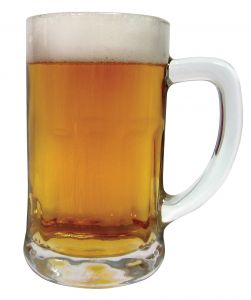The Origins of Common Sayings Or Did You REALLY Mean That?
The English language is full of sayings we use all the time. They are as common to us as the alphabet or the specific labels we use to identify objects in our world. I am sure that most of us, at least I did, think that we know what these sayings were originally meant to convey. When I did a bit of research I was surprised how far off I was.
The following are some of the common sayings that had very different origins from what I assumed they did. The overall meaning may even have changed a bit, especially as words have come to mean something totally different over the years. I am not claiming that these are the only origins, just relaying the most commonly indicated from the internet.

Rule of Thumb
I thought I knew this one, I really did. Rule of thumb is meant to indicate a general guideline as opposed to some absolute, never changing position. My mistake was to believe that "rule of thumb" originated as a guideline to the size of a switch or stick with which a man could legally hit is wife, which is just horrible to even consider. In reality there was no such rule of thumb law in either England or the United States, although it was occasionally referenced in court proceedings prior to the late 1800's, but not as a case law matter.
In reality it is now believed by scholars that the term rule of thumb was first used to designate a small measurement used by carpenters as a rough approximation of distance. Instead of measuring small spaces they simply and quickly used their thumbs to approximate the space. It may also have dually originated in brewing beer, where the brew master stuck his thumb into the liquid to check the temperature before adding the yeast .If the liquid was too hot he could not keep his thumb in and only when he could would the yeast be added.
Dead Ringer
We have all used this phrase before to indicate something that looks absolutely identical to something else. In reality the term doesn't have anything to do with being dead, rather the term dead refers to something that is very exact, such as in the term "dead" center or "dead" heat in a race.
Ringer is the term first used in the United States and Canada in the racehorse industry in the last century. Before the use of microchipping, DNA testing and mass photography and videography, disreputable horse owners used to switch a look alike horse in for an injured horse or poor runner. This would be a great way to have a horse with very low odds suddenly win a race, providing the owner a lot of unscrupulous betting advantages. Running a ringer therefore meant running a substitute, identical looking horse for the original. Putting the two terms together literally meant an exact duplicate for an original.

Win Hands Down
Seeing as I am on a horseracing theme, why not continue. To win hands down originally started at the track when a horse was winning by a huge margin over the rest of the competition.
In the normal riding position the jockey sits with his or her hands high on the neck of the horse and with the hands up above the elbows to keep the best contact with the horse both through the reins and in a forward position placing the jockey's weigh over the front shoulders. This gives the maximum thrust from the strong hindquarters, allowing the horse to run as fast as possible. When a horse was lengths ahead of the competition the jockey would lower his or her hands down to the horse's shoulder, allowing the horse and rider to cross the finish line first, with hands down.
Hell Bent For Leather
This is, from what I can find, a term that was actually started by the British Army in India. It seems that during their military action in the country they used to ride, oops back to horses again, full gallop across the rather rugged terrain, putting a huge strain on both the leather saddles and the poor horses. It seems that over time the phrase, which was used by Rudyard Kipling and other authors, came to mean traveling distances at a very fast pace, regardless of the mode of transportation.
Your Name Will Be Mud
Anything to do with the words "name" and "mud" have to do with a Dr. Samuel Mudd, a medical doctor that actually provided medical services to John Wilkes Booth after he assassinated Abraham Lincoln. Historians and others argue if Mudd actually was a co-conspirator or if he was just uniformed when he provided medical aid and mended Booth's broken leg. It seems that the newspapers started using terms such as "his name is like Mudd" to indicate anyone that was unpopular or seen as foolish. Over time the phrase has been shorted to simply "your name will be mud".

Mind Your P's and Q's
This one has nothing to do with horse racing or horses, but it might have something to do with drinking! There are three popular theories as to the origin of this phrase. Theory 1 is that in the British pubs beer was sold in pints and quarts, hence the barkeep would have to mind his p's and q's to get the billing straight and make sure his customers were happy and their thirst was quenched.
Theory 2 is that in the old days print setting was done by hand in newspapers and publishing companies. Typesetters and printers would be warned to watch their p's and q's, meaning the actual lowercase letters, to avoid mistakes and costly misprints. There are a lot of variations on this theory or so it seems when using any search engine.
Theory 3 has to do with teacher's using this as a way to help children remember their letters, however this seems to be rather general. They really aren't common letters in most words, especially the q, so I am honestly not sure about this one.
There are lots of other common sayings in any country that are interesting and rather amazing to research. If you have a few you know of, please leave them below.






